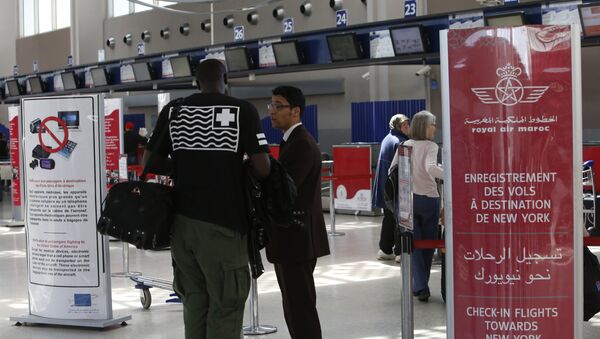Citing what the Washington security chief referred to as a "real threat," Kelly, a career military operative, stated over Memorial Day Weekend — one of the busiest travel times of the year — that terrorists were "obsessed" with destroying any and all US aircraft, especially if they have predominantly American citizens onboard.
The United States is surrounded by terrorists who seek to destroy airplanes in flight, "particularly a US carrier, if it's full of mostly US folks," Kelly declared, cited by Deutsche Welle.
"There's a real threat — numerous threats against aviation," Kelly, an avowed hawk, said during a cable news interview just four days after a suicide bomber detonated himself in the lobby of a pop music concert in the UK, killing 22 people — many of them children — and injuring at least 59.
One of the most surveilled states in the world, the UK has now raised its terror threat to the highest level in a decade and is warning of further attacks at busy public transportation centers, including train stations and airports.
Last week, however, Kelly met with highly sceptical European Commission officials in Brussels to discuss expanding the laptop ban. Alongside lawmakers and the traveling public, the air travel industry has been consistently critical of the move, according to DW.com.
A source within the French government told the Associated Press that there was no information to suggest that laptops and other electronic devices in aircraft cabins increased the threat of terror.
Regulators in Europe have additionally warned that storing hundreds of battery-powered devices in the hold of an aircraft for eight to 14 hours may be the greater threat — as the risk of ignition from poorly deactivated lithium-ion power sources is a much more likely negative scenario.
A complete ban on all laptops and other devices in the cabin of every aircraft entering and departing the US would greatly expand on an existing ban implemented in March against travel from 10 cities, primarily in the Middle East.
Aircraft arriving in the US from Egypt, Turkey, Jordan, Kuwait, Qatar, Saudi Arabia, the United Arab Emirates and Morocco are currently subject to Washington's laptop ban.
Several international carriers have accepted the ban by adopting a philosophical approach, including offering suggestions for how passengers on those flights affected might pass the time.
"Read a book," offers a recent ad campaign from Royal Jordanian Airlines, also suggesting that passengers "meditate," "analyze the meaning of life," and "engage in primitive dialogue from the pre-internet era."
Some airlines have also offered vetted laptops to their business-class customers, to be used during the flight.



